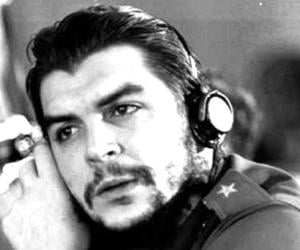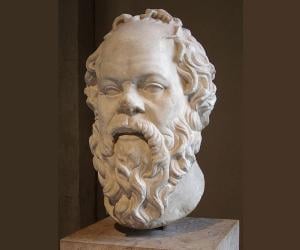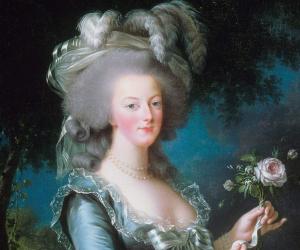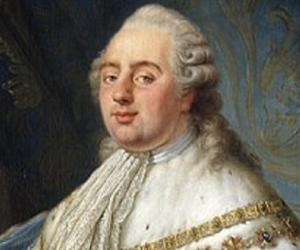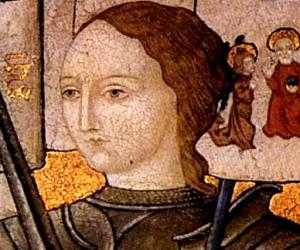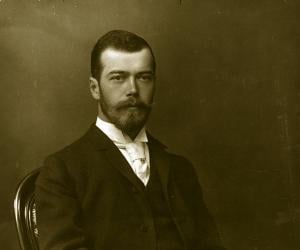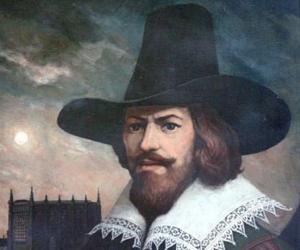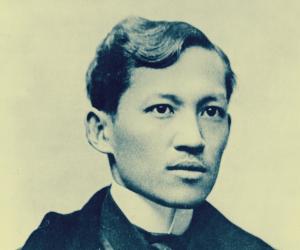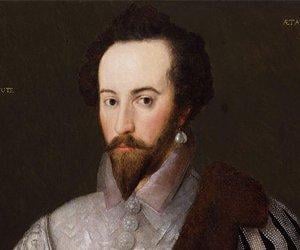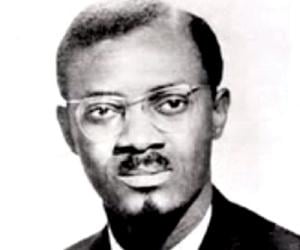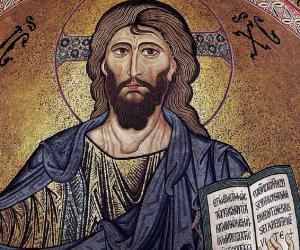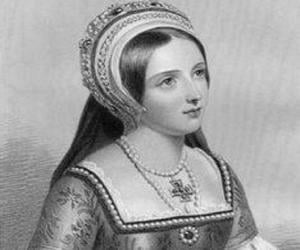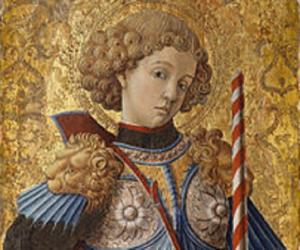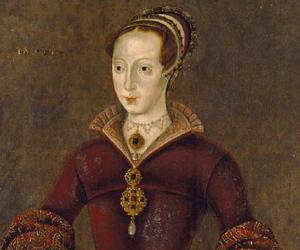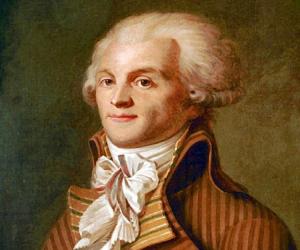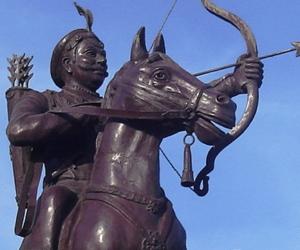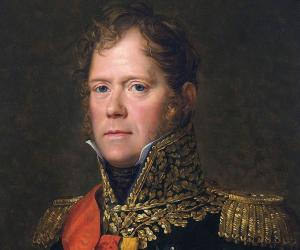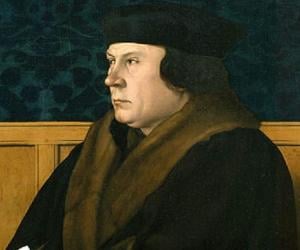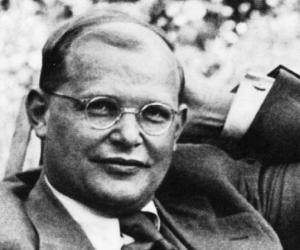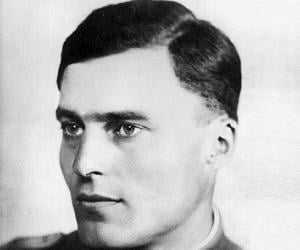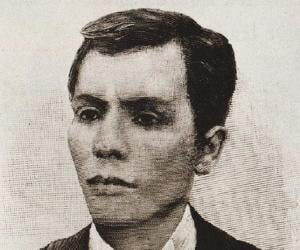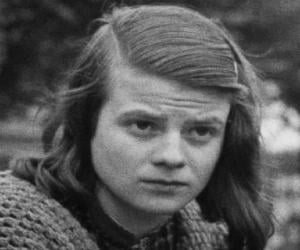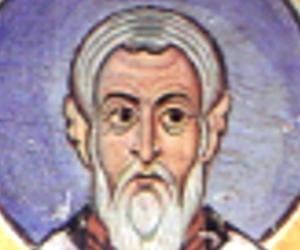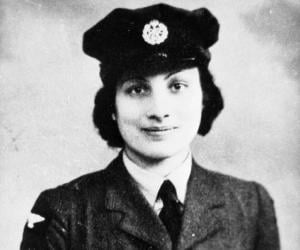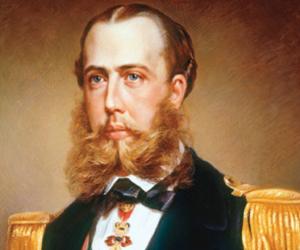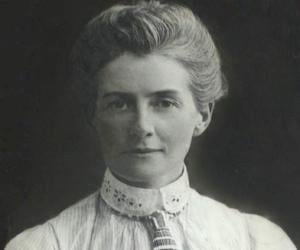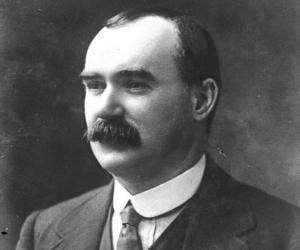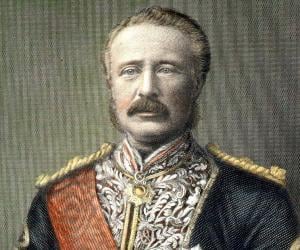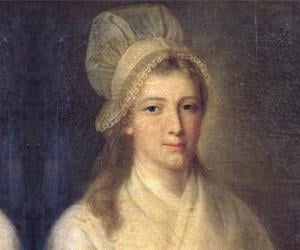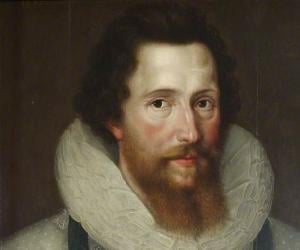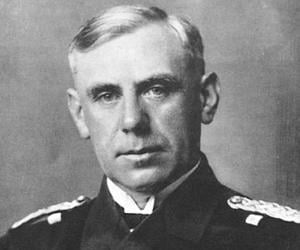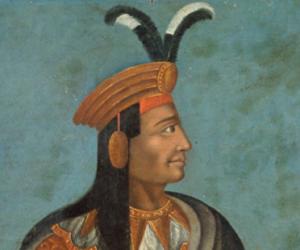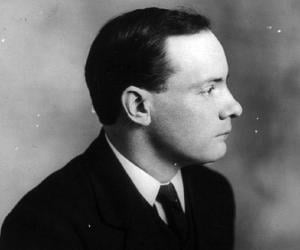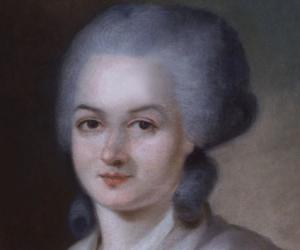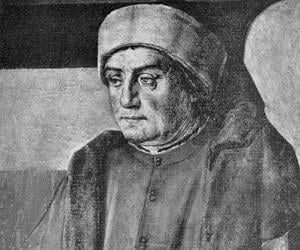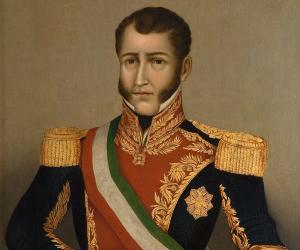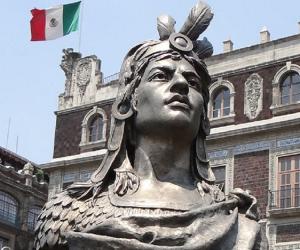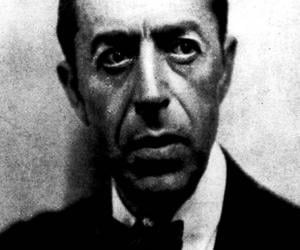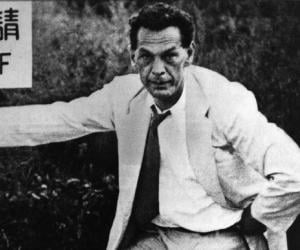Argentine Marxist revolutionary, Che Guevara, was a major figure of the Cuban Revolution. A physician by profession, he developed radical views upon witnessing the injustices in the world and joined Fidel Castro’s revolutionary 26th of July Movement. Assassinated in 1967, he remains both a revered and reviled historical figure.
A famous Greek philosopher, Socrates is credited with founding Western philosophy along with other popular philosophers of his time. An enigmatic figure, most of his work is documented by his famous student Plato. Socrates is widely regarded as one of the most influential philosophers of all time as he had a strong influence on the philosophers of the modern era.
Louis XVI of France reigned as the last king of France from 1774 to 1792 before the French Revolution, which ended the monarchy in France. During his reign, Louis made attempts to remove land and labor tax, abolish serfdom, and improve tolerance toward non-Catholics. However, the proposed reforms were opposed by the French nobility.
Considered a great saint and a symbol of French unity, Joan of Arc led the French army to the watershed victory over the English forces in Orleans in 1429. In 1430, she was captured by the Anglo-Burgundians while defending Compiegne. She was burned at the stake at the age of 19 in 1431. Pope Benedict XV canonised her in 1920.
Nicholas II reigned as the last Emperor of All Russia from 1894 until his abdication in 1917. His reign oversaw a series of reforms in Russia. These reforms included the introduction of literacy programs, civil liberties, and methods to modernize the empire's infrastructure. However, these reforms were eventually undermined by Nicholas' love for autocratic rule.
Guy Fawkes was a member of an infamous group which unsuccessfully plotted the murder of King James I. The plot, which came to be known as the Gunpowder Plot, became popular and Guy Fawkes became synonymous with the plot. The failure of the plot has been commemorated as Guy Fawkes Night, during which Fawkes' effigy is burned on a bonfire.
Jose Rizal was a Filipino polymath and nationalist. An ophthalmologist by profession, Rizal turned towards writing and inspired the Philippine Revolution through his writings. The revolution eventually led to Philippine independence and Rizal became a national hero. His life has inspired several biographical films and TV series.
Saint George was a Christian soldier in the Roman army who is accepted as a saint in Christianity. He was sentenced to death for refusing to recant his Christian faith and was executed by decapitation, according to Greek tradition. Saint George's Day is celebrated in his memory on 23 April. He is one of the most venerated saints in Christianity.
A king from the Chahamana dynasty, Prithviraj Chauhan ruled Sapadalaksha in present-day north-western India. The son of king Someshvara and queen Karpuradevi, he ascended to the throne when he was just a child. As a young man, he became known as a brave warrior and an excellent military commander. Various sources differ on the exact circumstances of his death.
Michel Ney was a French military commander. One of the 18 Marshals of the Empire inaugurated by Napoléon Bonaparte, Michel Ney played important roles in the Napoleonic Wars and the French Revolutionary Wars. Nicknamed the Bravest of the Brave by Napoleon himself, Ney was renowned for his valor in wars.
German army officer Claus von Stauffenberg, a significant figure of the German Resistance Movement within the Wehrmacht of Nazi Germany, attempted to assassinate Adolf Hitler in July 1944, but failed. He was executed by a firing squad soon after Operation Valkyrie. He had earlier actively participated in World War II.
Sophie Scholl was a German anti-Nazi political activist who was involved with a non-violent resistance group called White Rose. Scholl was executed by guillotine at the age of 21 for distributing anti-war leaflets. Since her death, Sophie Scholl has been viewed as an iconic figure. Her life and work have inspired several films, including Sophie Scholl – The Final Days.
Ignatius of Antioch went down in history as a man who was arrested and executed for his non-allegiance to Roman gods. The seven letters he wrote while being escorted from Antioch to Rome as a prisoner later served as a mirror that reflected his concern for Christianity, against false teachings.
Noor Inayat Khan was a British spy who served in a secret British World War II organization called Special Operations Executive (SOE) during the war. She was also the first female radio operator to be sent into occupied France from the UK to aid the French Resistance. She was subsequently caught and executed at a Nazi concentration camp.

After killing warlord Ding Yuan, Chinese army general Lü Bu ran away to work for another warlord, Dong Zhuo, whom he also killed. After assisting Yuan Shao, he fought against Cao Cao. He eventually lost to Cao Cao and Liu Bei in the Battle of Xiapi and was executed.
Edith Cavell was a British nurse best remembered for saving the lives of many soldiers from both camps without discrimination. She helped nearly 200 Allied soldiers escape from Belgium during World War I. Her decision to help both German and Allied soldiers without discrimination landed her in trouble; Edith Cavell was accused of treason and sentenced to death.
Charles George Gordon was a British administrator and Army officer. He is best remembered for his work as the commander of the Ever Victorious Army in China, which played a key role in suppressing the Taiping Rebellion. The force, under Gordon's command, was also able to defeat much larger forces, earning him the nickname Chinese Gordon.
Charlotte Corday was an important figure of the French Revolution. She is remembered for murdering Jacobin leader Jean-Paul Marat, for which she was executed by guillotine. Her action changed the political position and role of women at the time. She was also considered a hero by those who opposed the teachings of Jean-Paul Marat.
Robert Devereux, 2nd Earl of Essex, was an English nobleman. Considered a favorite of Elizabeth I, Robert Devereux did the unthinkable when he led an abortive coup d'état in 1601 against the government of Elizabeth I. He was subsequently executed for treason. Over the years, Robert Devereux has been portrayed in many stage plays, TV series, and films.
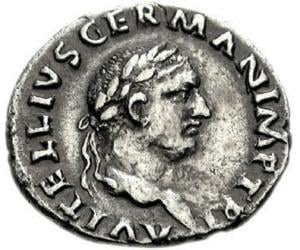
While Wilhelm Canaris became one of Hitler’s most trusted secret agents, he was actually supplying information to Britain all along. He went down in history as a man who was hanged twice for treason, first as part of torture for a few moments, and then for good.
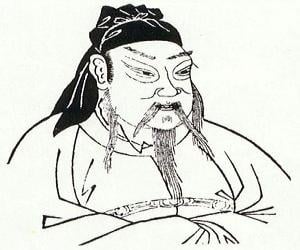
Guan Yu was nicknamed Beautiful Beard for his long, flowing beard. Featured in literary works such as Romance of the Three Kingdoms, Guan was a Chinese military general who served Liu Bei of the Eastern Han dynasty. Lord Guan is now revered as a deity in Chinese folk culture.
Atahualpa was the last Inca Emperor. He reigned for a short time between 1532 and 1533 before the Spanish conquest ended his reign. The Spanish conquistador Francisco Pizarro captured Atahualpa and killed him after a while. Even though many brave warriors led the Inca resistance against the invading Spaniards, they could not stop the empire from disintegrating.
Patrick Pearse was an Irish teacher, barrister, poet, writer, and revolutionary. He was one of the leaders of the Easter Rising in 1916. Opinionated with radical views, he decided as a boy that he would dedicate his life to Irish freedom. A relentless idealist, he was executed after the Easter Rising and was immortalized as a symbol of the rebellion.

The Maratha Empire’s second Chhatrapati, Sambhaji Bhosale, was the eldest son of Shivaji. After losing his mother at 2, he was raised by his grandmother. A treaty made him a Mughal mansabdar. Later, following repeated clashes with the Mughals, he was eventually captured and tortured to death.
Olympe de Gouges was an 18th-century French playwright and political activist. Her writings on women's rights and abolitionism were popular in various countries. She was an outspoken advocate against the slave trade in the French colonies. She demanded that French women be given the same rights as French men. She was executed during the Reign of Terror.
Anicius Manlius Severinus Boethius was a Roman senator, consul, and philosopher of the early 6th century. He worked under the Ostrogothic King Theodoric the Great, who later imprisoned and killed him. In jail, Boethius wrote his Consolation of Philosophy, which is considered a seminal treatise on death, fortune, and other issues. He also translated the works of Plato and Aristotle.
Agustín de Iturbide was a Mexican politician and army general who played a key role during the Mexican War of Independence. During the war, Agustín built a successful military and political coalition that brought the entire Mexico City under its control on 27 September 1821, thus playing an important role in gaining independence for Mexico.
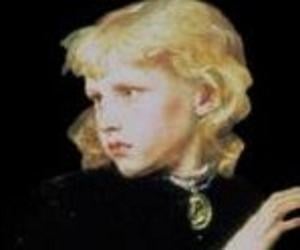
Cuauhtémoc was the Aztec ruler of Tenochtitlan who reigned from 1520 to 1521. The last Aztec Emperor, Cuauhtémoc is an important historical figure in present-day Mexico. His image has appeared on Mexican banknotes and coins. Over the years, he has been a popular subject of paintings and music in Mexico.
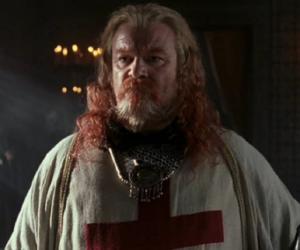
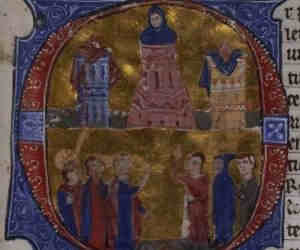

Mongol army commander Baiju Noyan is remembered for his campaigns in Persia and Georgia. He served Ögedei Khan, the Commander of Persia, and led his forces in the Battle of Köse Dağ and the Siege of Baghdad. Following his death, the descendants of Hulagu Khan inherited the regions he commanded.
Born in Russia, Sigmund Rosenblum was the illegitimate son of a doctor. He later joined the British intelligence services as a spy under the alias Sidney Reilly and mostly reported on the oil deals of Russia. He wished to topple the Bolshevik regime but was eventually executed by Russian authorities.
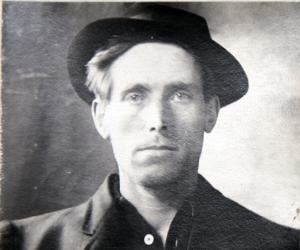
Richard Sorge was a German journalist and Soviet military intelligence officer. He was active before and during the Second World War. He worked undercover in both Nazi Germany and the Empire of Japan under the codename, "Ramsay." He was arrested, tortured, and hanged in 1944. In 1964, he was posthumously awarded the title of Hero of the Soviet Union.
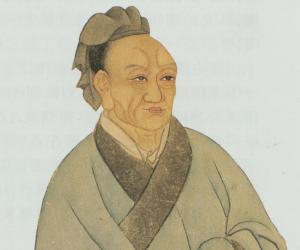
The first noted Chinese historian, Sima Qian is best remembered for authoring the history of China titled Shiji. The son of Sima Tan, a court historian of the Han dynasty, Qian traveled widely and was also responsible for modifying the Chinese calendar. He was later castrated for defaming Emperor Wu.
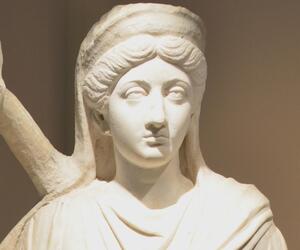
The second-born daughter of Emperor Marcus Aurelius, Lucilla was married off to his father’s co-ruler, Lucius Verus, who was twice his age. After both Verus and Aurelius died, Commodus, Lucilla’s brother, came to power. Though Lucilla was politically conscious, she was eventually executed in her early 30s for plotting the murder of Commodus.
